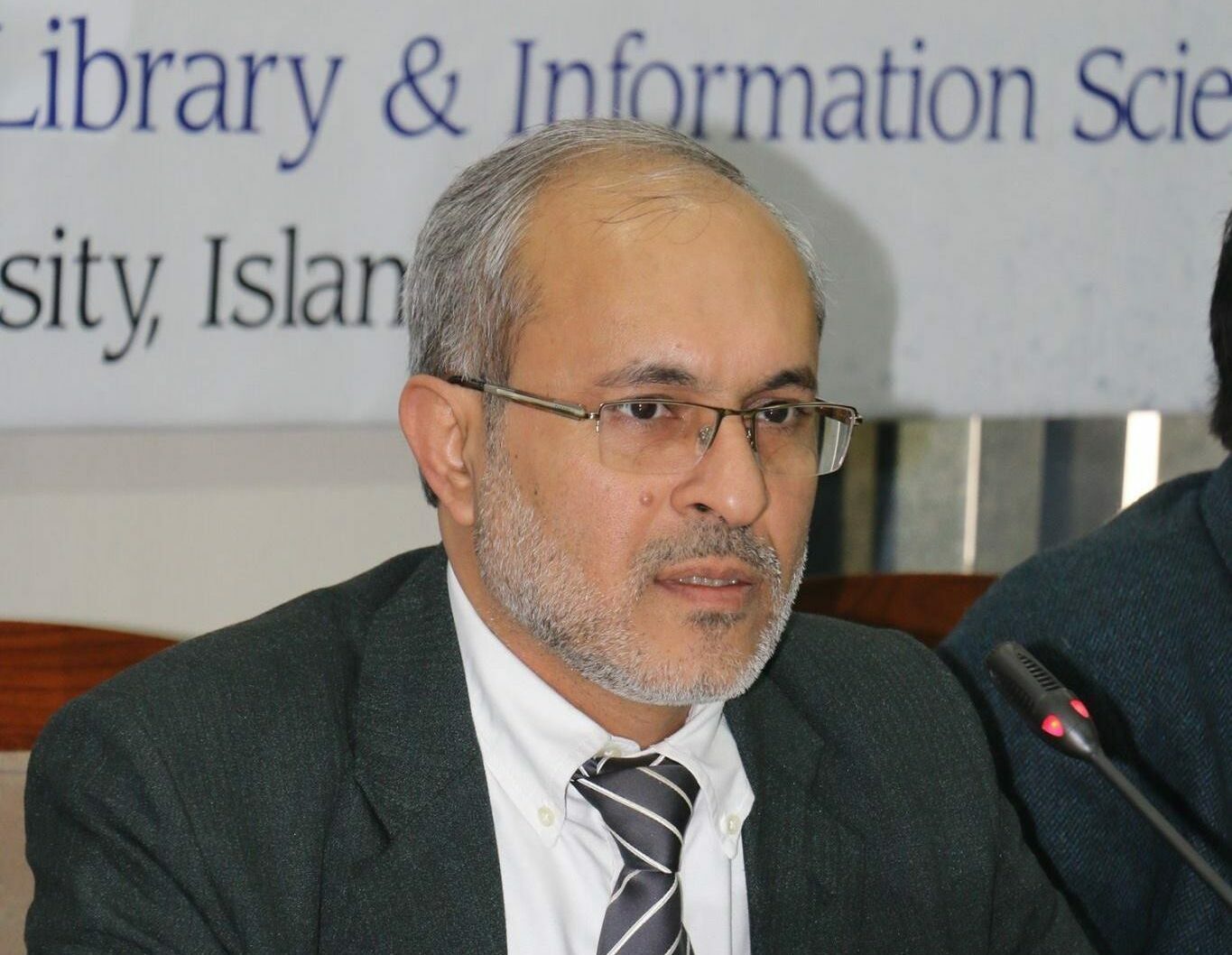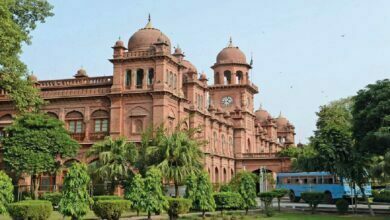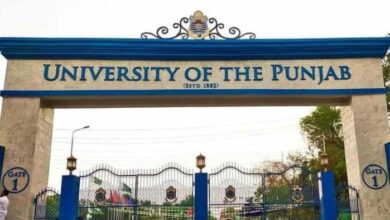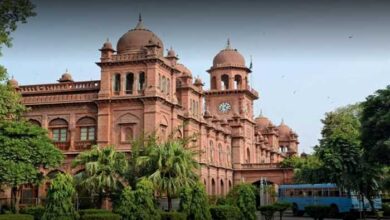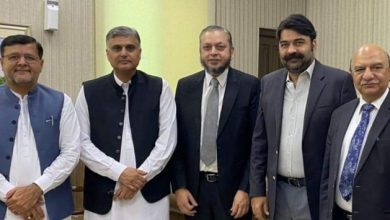LAHORE: Post COVID-19 era is a huge challenge for the universities to come up with the much-needed practical solutions for the issues that have cropped up in Pakistan as well as other countries. Pakistani universities especially the Punjab University have taken up its responsibility of working on solutions to spur the economic growth and development of Pakistan.
Punjab University Faculty of Economics and Management Sciences Dean, and PU Ranking Committee Chairman Prof Dr. Khalid Mahmood is leading from the front to initiate and encourage students to engage in research for practical solutions to various problems that have surfaced past one year.
“I firmly believe that only research work of universities can help in solving different problems in the post-covid-19 era. For example, new methods of research can help in the formulation of amazing solutions considering that Professor of Information Management has now become a key for quick results,” he added.
Dr. Khalid Mahmood is also running a bilingual (Urdu/Hindi and English) YouTube channel titled ‘Information, Education and Research and has over 3,000 subscribers. The professor launched this venture amid the COVID-19 pandemic. He also launched his website to disseminate research knowledge for aspirants, researchers, faculty members, and students at large. Readers can watch the introduction of his YouTube channel at this link and do not forget to subscribe channel:
Professor of Information Management Dr. Khalid in an exclusive with Tribune Wired explained the urgent need to expedite research work for Pakistani universities to deal with the post covid situation. He said, “All the developed countries like the U.S. and Japan only progressed because they invested in research like modern education and latest defense technology research. Even research has significantly improved their social life by investing a huge cache of money in research and creating a ‘scientific mindset’ in their society.”
Talking about research culture in Pakistan, Dr. Khalid said, “Pakistan is a developing country and facing multiple challenges like the economy, population pressure and lack of basic facilities to citizens. There is an acute shortage of research funding in every sector which affects our social sector.
Brain drain and Pakistan’s education system
ADVERTISEMENT
In Pakistan, we do not pay a handsome salary to our scientists and researchers at large and eventually, our good academicians and best minds of the country landed in foreign countries on good terms and conditions in their pursuit of a good life.
The second main problem which puts hurdles in the flourishment of research culture in Pakistan is the brain drain. The third problem is of course the country’s education system in which we emphasized rote learning instead of providing space for our students to ask questions. We need to stop the culture of illogical thinking by introducing critical thinking courses in schools and universities syllabus.

Dr. Khalid said our education system is not promoting the research culture and does not promote the challenge of the status quo or knowledge.
“Existing knowledge must be validated through research,” he added.
However, the professor has a strong view that with the establishment of the Higher Education Commission (HEC), previously known as the University Grant Commission (UGC) in 2001, the research culture has significantly improved in Pakistan.
The HEC has introduced several measures including the Tenure Track System (TTS) that emphasizes teachers to work on research instead of administrative work.
Dr. Khalid shared an interesting tale from the past. He said one of his friends was at the top administrative post in the library linked to Pakistan pride Abdul Qadeer Khan Research Laboratory. The then librarian told Dr. Khalid, “There is no budget limit. AQ Khan sahib directed me to arrange any paper or document that was needed by scientists irrespective of its cost.”
“The development work is not possible without research,” he commented.
“When Zulfiqar Ali Bhutto said we would eat grass but make nuclear bombs, we did it. We invested money in that project and researchers performed,” the professor said.
Dr. Khalid opined that the fourth problem of lack of research centers is because of the government’s priorities. “Policymakers need to invest in an air conditioner for consumption, but research is an investment. We are becoming a consumer society.”
Dr Khalid commented: “When you make some joker a minister of science and technology and he can’t get away with his obsession to be on TV screen then what do you expect from him to contribute in actual.”
Higher Education and Research and Academia-Industry linkages
Punjab University Faculty of Economics and Management Sciences Dean said that we are focusing more on teaching and not on the research in universities.
Another lack in our universities is the lack of academia-industry linkages. In foreign countries, industries approach universities, and their research respond with a solution to their problem in time. However, in Pakistan, few industries have developed their Research and Development (R&D) department and the gap is so wide and needs to be bridged.
Dr. Khalid has emphasized that public sector universities are still leading in research in comparison to private sector universities.

Lack of Funding in research
Pakistan is standing near to Turkey, Malaysia, other Muslim countries in terms of its research outputs but lack of funding in research projects is the primary hurdle in flouring the research culture in our country.
“Our policymakers need to understand. It is as simple as that if you are researching chemistry, you need chemicals and if in physics, you need machinery,” he added.
Dr. Khalid is the author of 118 research papers published in national and international journals of repute. He has contributed seven books. He is the chief editor of a well-known scholarly publication, i.e., Pakistan Journal of Library and Information Science. He is a member of editorial boards of the following international and national LIS journals: Information Development (Sage Publications, USA), Library Philosophy and Practice (LPP) (University of Idaho, USA), Webology (University of Tehran), and Pakistan Library & Information Science Journal (Library Promotion Bureau, Karachi).
Dr. Khalid is also running his professional website titled www.khalidmahmood.pk and shares many PowerPoints free of cost for students and freelance researchers.
Prof Dr. Khalid said it is high time that policymakers invest in research for a better future of Pakistan, and he believed Pakistani researchers can outclass other countries, as we did in the past if provided proper funding and resources.


